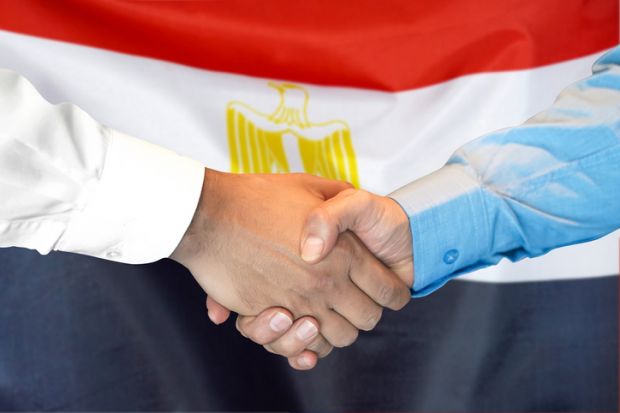A British university will play a crucial role in supporting the development of two pioneering Egyptian universities designed to equip graduates with both technological and “soft” skills.
The Alalamein International and New Mansoura universities are among four new-style institutions to be built, owned and run by Egypt’s national education authorities.
Under a five-year memorandum of understanding between the University of East London and the Egyptian Ministry of Higher Education, UEL will play a significant role in the establishment and governance of the new institutions, and the recruitment of academic staff. A franchise arrangement will accredit dual degrees in disciplines such as engineering, computer science, tourism, art and design, business and law. And Egyptian students will be able to access UEL’s resources, career coaching and support services.
Amanda Broderick, UEL’s vice-chancellor, said that she was “confident this new partnership will deliver huge benefits to University of East London students and to students in Egypt”.
Jason Lane, dean of the School of Education of the University at Albany, State University of New York, said that building the two new universities was “clearly in line with Egypt’s strategic goals to reinvent its higher education system to prepare its growing youth population for the jobs of tomorrow”.
“Already, Egypt has pursued a strategy to recruit international branch campuses, which has had modest success in attracting interested universities,” he said.
“While there is government support and a rapidly growing youth population, the challenges are many – from security concerns to instability within the government to restrictions on freedom of speech.”
But can such challenges also make practical and reputational difficulties for Western institutions that get into partnerships with countries such as Egypt?
The involvement of UEL, replied Dr Lane, “mitigates some of these issues by creating an organisational and political buffer that allows it to assist with the development of the new institution in a way that it reflects Western educational tenets. But it also limits its ultimate influence upon the curriculum and operation – while allowing it to fairly quickly distance itself from the new institution should trouble arise.”
Register to continue
Why register?
- Registration is free and only takes a moment
- Once registered, you can read 3 articles a month
- Sign up for our newsletter
Subscribe
Or subscribe for unlimited access to:
- Unlimited access to news, views, insights & reviews
- Digital editions
- Digital access to THE’s university and college rankings analysis
Already registered or a current subscriber?









